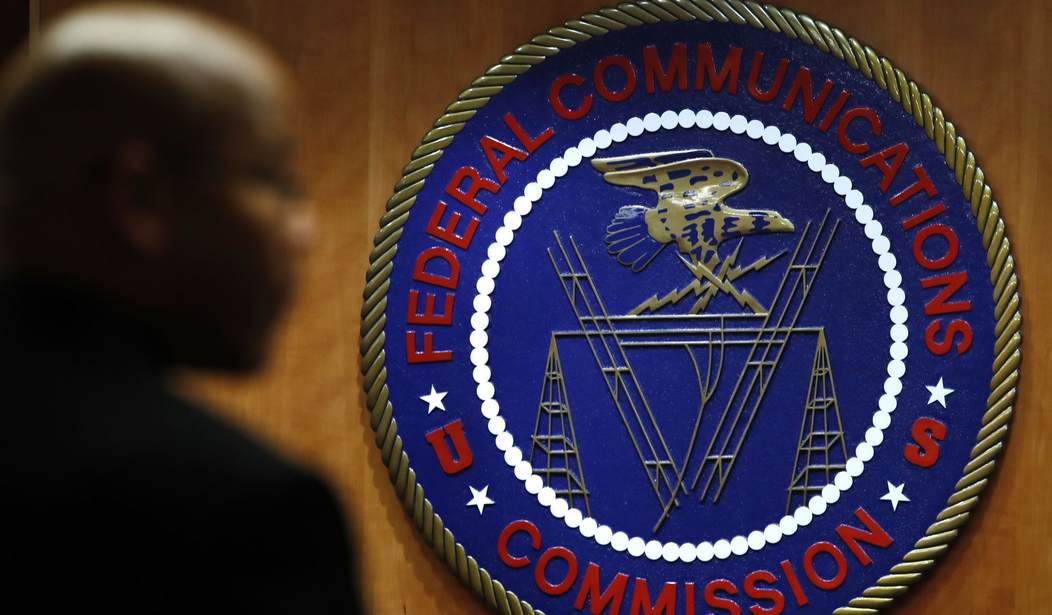After Donald Trump won the presidency in 2016, Google famously held an all-hands meeting where the tech giant promised its woke employees that it would do everything it could to prevent such an election result from ever happening again. That was the moment Big Tech abandoned its previous support for free speech and free expression and instead began to weaponize its considerable market power against the American people.
Today, a powerful censorship regime has asserted its power over nearly every facet of the Internet. From Google manipulating search results to Apple and Amazon de-platforming Parler to Twitter and Facebook blocking and throttling the Hunter Biden laptop story, the tech platforms have shown they will leverage their market position and network effects to promote an extreme left-wing worldview — even influencing elections.
The Twitter Files and Murthy v. Missouri revealed how the tech companies have acted both at the behest of, and in concert with, the FBI and the Biden White House to censor Americans’ speech. It should therefore be particularly concerning that Biden’s Federal Communications Commission is about to vote on a so-called “net neutrality” plan that will give the agency complete power over Internet infrastructure itself — the fiber cables, wireless signals, and satellites that transmit and deliver data.
While framed by the left and mainstream media as a consumer protection issue, net neutrality has always been a euphemism for government control of broadband networks, as explained by Republican FCC Commissioner Brendan Carr. Slogans aside, the actual policy issue at play is whether broadband Internet access should be regulated as a telecommunications service under Title II of the 1934 Communications Act — a law designed for the monopoly telephone.
Recommended
Big Tech has long supported net neutrality — and funded its activists — because the policy gives the tech giants a leg up in negotiations with Internet Service Providers (ISPs) over traffic carriage. Big Tech no doubt hopes that friendly administrations, like Obama’s and Biden’s, would intervene on behalf of a favored industry.
Soros-funded groups with Orwellian names like “Free Press'' support the policy for more ideological reasons. As the organization’s co-founder Robert McChesney put it, “the ultimate goal is to get rid of the media capitalists in the phone and cable companies and to divest them from control.” In other words, the state, and not private companies, should control the means of communication.
The debate over net neutrality has raged for more than two decades and has largely been characterized by hysteria over how the sky will fall in the absence of regulation. What gets less attention is just how much power over the Internet Title II of the Communications Act gives the president of the United States. Ironically, it was current FCC Chair Jessica Rosenworcel who warned of this back in 2020 — when the Bad Orange Man was the president.
In The Washington Post, then-Commissioner Rosenworcel wrote that the wartime powers provision Communications Act language is “undeniably broad” and its power “virtually unchecked,” allowing “the president to shut down or take control” of the Internet if “there exists a state or threat of war involving the United States.” She noted that “unspoken norms” aren’t enough to prevent a U.S. president from exercising this authority as, presumably under Trump, “Norms are now broken all the time in Washington.” She concludes with a breathless warning: “We need this discussion,” lest we have “government-directed shutdowns” of the Internet right here at home.
Unsurprisingly, when Biden assumed office, Rosenworcel managed to catch her breath. This discussion completely evaporated. She hasn’t said a word about the administration’s jawboning and co-opting of social media firms to censor Americans. And she appears to have no qualms about handing Biden the power to turn off the Internet or portions of it — for example, by requiring ISPs to block Elon Musk-owned X on national security grounds. Exacerbating this concern is that the old justifications for net neutrality have been replaced with a litany of “national security” and “public safety”-related concerns — the same type of language often used by America’s misinformation industrial complex to justify social media censorship.
Even if Biden were never to invoke the “nuclear option” of wartime powers over the Internet, America’s social media experience demonstrates that the administration doesn’t exactly need explicit regulation to get companies to do what it wants. The mere threat of action is enough to influence behavior, and it raises the question of what ISPs, under a multi-prong regulatory onslaught from the FCC and other Biden agencies, will do to appease the president. It is better PR for censorship to happen in the shadows anyway.
Understandably, Republicans may be tired of the net neutrality issue. It goes back and forth with every change in administration, and nothing major seems to happen as a result either way. But if there’s one thing that has changed since the term was coined in the early 2000s, it is that Democrats have dispensed with the norm of supporting free speech. Republicans should ask themselves a simple question: can we really trust President Biden and his FCC with this type of broad censorship power over the Internet?
Jon Schweppe is the policy director at American Principles Project. Follow him on X @JonSchweppe.

























Join the conversation as a VIP Member